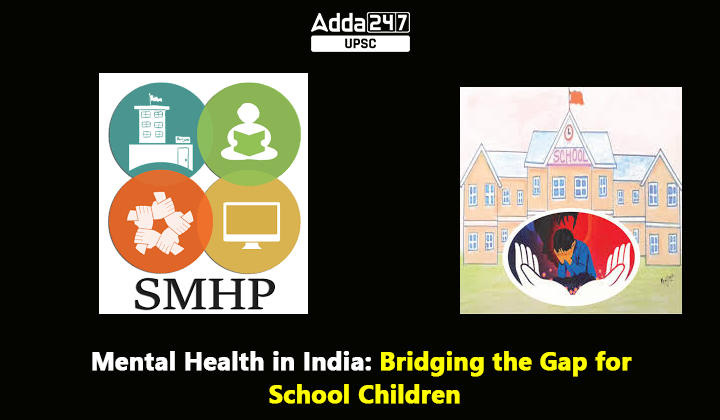Table of Contents
In recent years, India has made significant progress in addressing mental health issues across various segments of its population. However, one area that has remained somewhat neglected is the mental health of schoolchildren. A National Mental Health Survey conducted in 2015–16 revealed alarming statistics about the prevalence of mental disorders among children between the ages of 13 and 17. In this article, we will explore the state of mental health programs for schoolchildren in India, the challenges they face, and the steps being taken to improve the situation.
National Mental Health Survey (NMHS)
As per the National Mental Health Survey (NMHS) conducted in 2015–16, the prevalence of mental disorders among children between the ages of 13 and 17 was 7.3% in both genders. Further, 26.8% of girls were getting married below the legal age, while 8% of girls between ages 15 and 19 were already mothers or pregnant. The survey also found that 37% of women between ages 15 and 24 have experienced physical, sexual, or emotional violence by their husbands—this includes children technically of school-going age.
School Children’s Mental Health
The National Mental Health Survey highlighted the vulnerability of young children, particularly girls, to various risks, including sexual coercion, unwanted pregnancies, unsafe abortions, physical injuries, and digital challenges like cyberbullying, internet addiction, and pornography. These risks have a profound impact on their physical and mental well-being.
School Mental Health Programs (SMHP)
According to a report from UNICEF, an effective school mental health program (SMHP) should encompass five essential pillars of support:
- Enabling Learning Environment: Schools should create an environment that is conducive to learning and mental well-being. This includes promoting a safe and supportive atmosphere.
- Access to Early Intervention and Mental Health Services: Early detection and timely intervention are critical in addressing mental health issues among schoolchildren.
- Teacher’s Well-being: Ensuring the well-being of teachers is essential, as they play a vital role in a child’s overall development.
- Targeted Mental Health Programs: These programs should utilize the educational workforce at national, state, and local levels to provide specialized mental health support.
- Meaningful Collaboration: Collaboration between schools, families, and communities is vital to tailor programs, monitor children’s health, and build trust.
Existing SMHPs in India
India initiated the National Mental Health Programme (NMHP) in 1982 to promote mental healthcare, community participation, and mental health knowledge in general medical services. Within the NMHP, the District Mental Health Program (DMHP) was launched in 1996, which focused on early detection, training general physicians, public awareness, and monitoring.
Over time, the DMHP expanded its scope to include improving medical infrastructure, mental hospitals, training, life-skill education, and counseling in schools and colleges. The 2017 National Mental Health Policy aimed to destigmatize mental illnesses and integrate those suffering from mental health issues into society.
In 2018, the government launched the School Health Program under the Ayushman Bharat scheme, focusing on the mental health of middle and high school children. This program included activities like meditation and yoga, bullying prevention, internet safety, and violence awareness.
Challenges in India’s SMHP
One significant challenge in India’s mental health sector is the shortage of mental health professionals. The World Mental Health Atlas reported alarmingly low numbers of psychiatrists, mental health nurses, and psychologists per lakh of the population in India. Furthermore, there is no comprehensive, uniform SMHP to address the mental health and well-being of all schoolchildren uniformly across the nation.
The Way Forward
To address the increasing rates of student suicides and the alarming statistics related to students’ mental health, the NITI Aayog is planning to establish a comprehensive school healthcare program. The program will target students in both government and private schools through policy interventions and existing health promotion measures under the Ayushman Bharat scheme.
Conclusion
The mental health of schoolchildren in India is a crucial area that requires immediate attention and reform. While the country has made strides in addressing mental health in various segments of the population, a comprehensive and uniform school mental health program is urgently needed. It is heartening to see that steps are being taken to bridge this gap and provide a healthier, more supportive environment for India’s future generations.



 TSPSC Group 1 Question Paper 2024, Downl...
TSPSC Group 1 Question Paper 2024, Downl...
 TSPSC Group 1 Answer key 2024 Out, Downl...
TSPSC Group 1 Answer key 2024 Out, Downl...
 UPSC Prelims 2024 Question Paper, Downlo...
UPSC Prelims 2024 Question Paper, Downlo...




